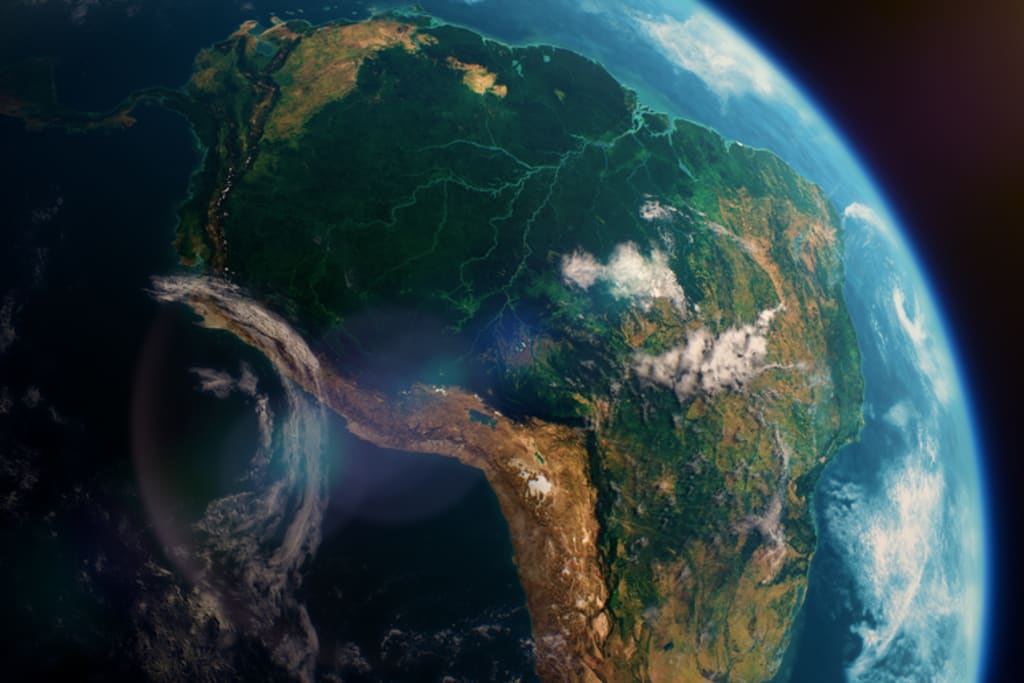"Earth's Sudden Halt"
Unveiling the Cataclysmic Consequences of a 5-Second Pause!

Prepare yourselves for a mind-boggling scenario that defies our everyday understanding of the world we live in. Imagine, for a fleeting five seconds, the Earth's rotation comes to a sudden and unprecedented halt. What cataclysmic events would unfold? How would this affect people across the globe? And if the Earth were to resume its rotation, could we still call it a habitable planet? In this speculative exploration, we will not only delve into the immediate consequences of such an event but also ponder the long-term implications.
The Earth's rotation is a fundamental aspect of our daily lives, orchestrating the dance of day and night. The roots of this incredible phenomenon can be traced back to the chaotic and violent collisions that marked the Earth's formation some 4.6 billion years ago. As a swirling disc of gas and dust encircled our young sun, tiny particles of dust and rock collided and merged, setting in motion forces that locked the Earth's rotation into a unidirectional spin. Picture this process as akin to a figure skater twirling faster and faster. With the vastness of space offering minimal resistance to hinder its rotation, the Earth has been spinning continuously and will do so for countless billions of years to come.
Now, let's venture into the heart of our hypothetical scenario. What if, for a mere five seconds, the Earth's rotation ceased entirely? The immediate repercussions would be nothing short of astonishing.
First and foremost, we must consider that while the Earth's rotation stops abruptly, the atmosphere remains in motion. This intriguing phenomenon would give birth to powerful and chaotic winds that persist even as the planet grinds to a halt. These winds would be unlike anything we've ever encountered, dwarfing even the fiercest natural tempests in human history. The magnitude of these winds would vary depending on one's location on the planet. Near the equator, where the Earth spins at its most rapid pace, wind speeds would reach a staggering 1,670 kilometers per hour. These winds would possess the raw force to send individuals hurtling through the air, akin to being caught in the eye of an apocalyptic hurricane.
However, we must not focus solely on the fate of individuals in this scenario, as these colossal winds would possess the capacity to wreak havoc on a geological scale. Whether one finds themselves in an open field or a seemingly impenetrable fortress of steel and concrete, these winds would obliterate everything in their path.
To put this into perspective, let's compare it to the most formidable F5 tornadoes on Earth, which boast wind velocities of up to 511 kilometers per hour. These superstorms are capable of uprooting houses from their foundations, launching vehicles skyward, and even reducing concrete structures to rubble. Now imagine that the winds resulting from the Earth's abrupt cessation of rotation would surpass the fury of these tornadoes threefold. Such forces would not only decimate structures but also tear the Earth's crust apart, leading to geological chaos on an unprecedented scale.
But what would happen after these tumultuous five seconds? Would the Earth be forever scarred, or would it gradually regain its equilibrium?
The aftermath of this cataclysmic event would depend on several factors. One crucial element is the Earth's ability to restart its rotation. Given the colossal amount of energy required to halt the planet's spin in the first place, resuming its rotation would be an immense challenge. The gravitational interactions between the Earth, the Moon, and the Sun, which influence our planet's rotation, would need to be considered.
Assuming the Earth could overcome these obstacles and resume its rotation, the consequences would still be profound. The immediate geological upheaval would leave scars on the planet's surface, altering landscapes, and potentially triggering seismic activity and volcanic eruptions. The atmosphere would take time to stabilize, resulting in erratic weather patterns and extreme climatic shifts.
Moreover, the sudden stop and subsequent restart of the Earth's rotation would have a lasting impact on ecosystems and wildlife. Species adapted to the regular rhythm of day and night would face significant challenges in adjusting to the altered light-dark cycle. Migration patterns, reproductive cycles, and behavior patterns could be disrupted, potentially leading to population declines and extinctions.
In conclusion, the hypothetical scenario of the Earth stopping its rotation for a mere five seconds is a captivating thought experiment that reveals the delicate balance and interdependence of the Earth's natural systems. While the immediate consequences of such an event would be catastrophic, the long-term implications underscore the resilience of life on Earth and its ability to adapt to even the most extreme challenges. It serves as a reminder of the awe-inspiring forces that shape our planet and the fragility of the balance we often take for granted in our daily lives.





Comments
There are no comments for this story
Be the first to respond and start the conversation.